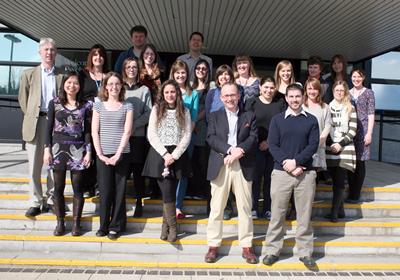Although housed within Psychology, DBBL highly prizes its multi-disciplinary constitution. Its membership includes developmental and educational psychologists, psychopathologists and neuroscientists, behaviour analysts, child psychiatrists, paediatric neurologists and community paediatricians all working together to provide a range of unique perspectives on common clinical and scientific problems.
The mission of the Laboratory is to:
- Study the relationship between genetic and environmental risk factors, neural processes, psychological function and atypical development in infancy, childhood and adolescence using experimental, observational, imaging and epidemiological approaches.
- Increase understanding of the causes and outcomes of acquired and developmental child and adolescent psychiatric disorders including disorders of impulse, attention, conduct and mood.
- Translate this basic research into clinical practice to the benefit of children and their families.
- Examine the clinical costs and benefits of new and innovative treatments for these disorders.
Funding
Recent grants to DBBL unit members include those from funders including the Department of Health; the Economic & Social Research Council; the Medical Research Council; Eli Lilly & Co UK; the Food Standards Agency; HOPE; the Jacobs Foundation; Janssen Cilag; the National Institute of Mental Health; the Nuffield Foundation; the Wellcome Trust; the Adventure in Research Scheme and industrial sponsors such as Shire Pharmaceuticals.
In addition, DBBL has active and funded links with many international centres of excellence including the Social Genetic Developmental Psychiatry Centre at the Institute of Psychiatry, Kings College, London; the Child Study Centre, New York University; the Department of Psychiatry, University of Cambridge; the MRC Cognition and Brain Sciences Unit; School of Psychology, Cardiff University; the Child Development Centre, University of California; the Department of Psychiatry, Harvard University; the Institute of Child Health, University College London; the Department of Psychological Medicine, University of Wales; the College of Medicine, Cardiff; Bangor University; the University of Queensland; the University of Sheffield; the University of Gent; the Federal University of Rio Grando do Sul Porto Alegre; Aarhus University; the University of Leuven; VU University, Amsterdam.
